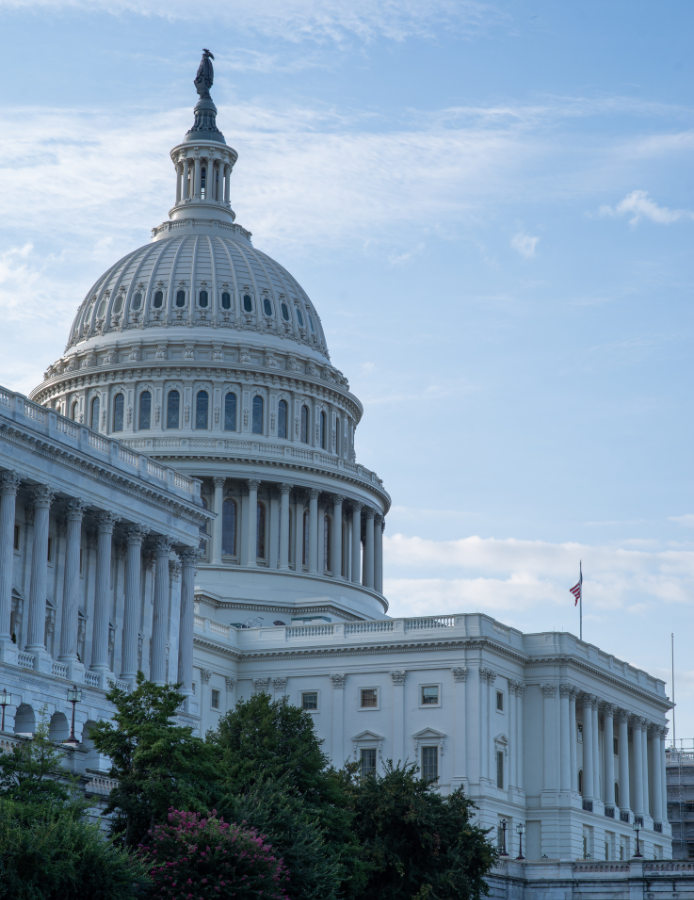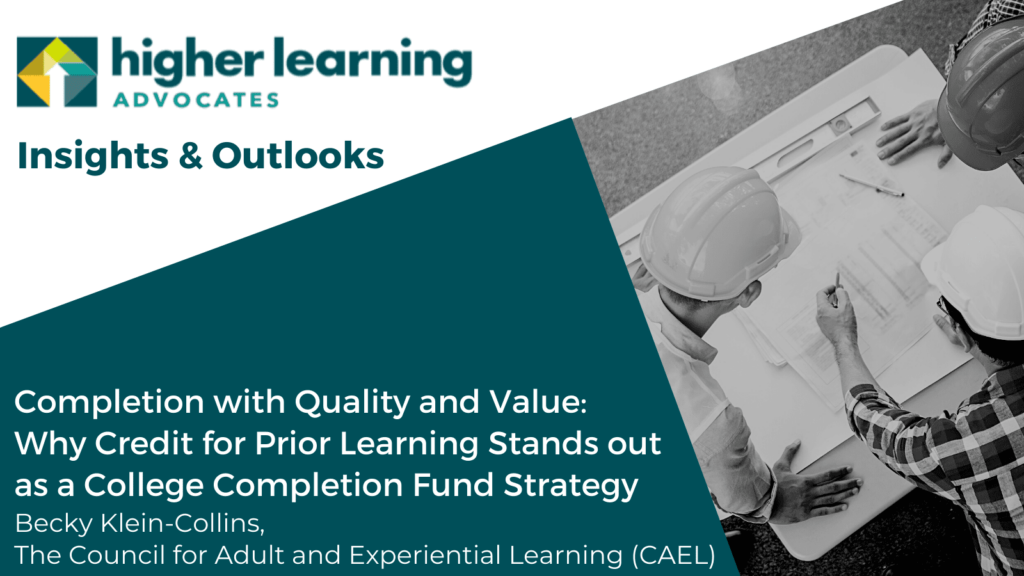Funding for College-Completion Program at Risk in Federal Budget
Fourteen thousand students dropped out of the Austin Community College District in Texas during the last two academic years. But the institution of more than 36,000 students has a plan to get some of them back. Supported by a $770,765 Education Department grant, that plan involves reaching out to students and connecting them with career…
Read More‘A Necessary Start’: Statement on Release of New Gainful Employment Rule
WASHINGTON – Higher Learning Advocates (HLA) released a statement in response to the U.S. Department of Education’s recent release of their proposed Gainful Employment Rule. “Transparency and accountability are pivotal to ensure today’s students finish a program of study financially better off than when they started. Higher Learning Advocates applauds the Department of Education for…
Read MoreMeasuring ROI in Higher Education
Measuring ROI in Higher Education “In this episode, Dr. Jason Altmire talks with Julie Peller of Higher Learning Advocates about accountability, ROI in higher education, and the future of the for-profit sector. Julie Peller is the Executive Director of Higher Learning Advocates. She also served as the Deputy Staff Director for the House Committee on Education and Labor. Julie…
Read MoreCompletion with Quality and Value: Why Credit for Prior Learning Stands out as a College Completion Fund Strategy
While the fate of the Build Back Better Act is currently unclear, there are parts of the proposed legislation that could survive in some form. One important part of the proposal is the College Completion Fund, a fund that could provide as much as $550 million for scaling evidence-based programs to improve retention and completion…
Read MoreImproving Workforce Success among America’s College Students
As the presidential campaign of 2020 kicks into high gear, the stagnation of worker earnings in recent decades has drawn much attention and comment from the candidates. Yet, outside of advocating for a few trendy proposals like free college, the candidates have said little to date on how to improve education and skills, especially those…
Read MoreHigher Ed: Please Show Your Work. Make Student Learning Visible to Employers.
Remember when your math teacher in grade school required you to “show your work,” so that they could see the steps you took to solve a problem? Whether your answer was correct or incorrect, they could see the extent to which you had mastered the problem solving technique and identify areas where additional practice was…
Read MoreCommunity College Leaders Band Together to Advocate for Today’s Students
The characteristics of individuals enrolling in postsecondary education today are significantly different than they were when the Higher Education Act was first passed by Congress in the 1960s. Over 70 percent of today’s postsecondary students can be described as “non-traditional”—balancing work and family obligations while attending classes. At the community college level, this trend is…
Read MoreMy Dream for HEA: Meaningfully Prepare Every Teacher and Principal for Success – Throughout Their Career
New teachers and principals are often told that the first year is “trial by fire” or “sink or swim.” Too many educators leave the profession, and others are far less effective in those early years than they could be. Experienced teachers, on the other hand, often lack career advancement opportunities that allow them to take…
Read MoreAn In-depth Look at Student Enrollment Factors
A Q&A with Jonell Sanchez, Vice President of Education Solutions for The National Student Clearinghouse Insights & Outlooks: There is currently a ban on the creation of a federal student unit record system, but there is increased interest from policymakers in understanding student success metrics– specifically around persistence and retention. Given your experience and the…
Read MoreA Q&A with Andre Perry, David M. Rubenstein Fellow for the Brookings Institution
Insights & Outlooks: How did you originally develop a passion for education, both personally and as a career? What are the issues that inspire you most today? I got my first job in the summer of 1990 as a rising sophomore at Allegheny College in Meadville, Penn. The Pennsylvania Department of Education hired me as…
Read More









